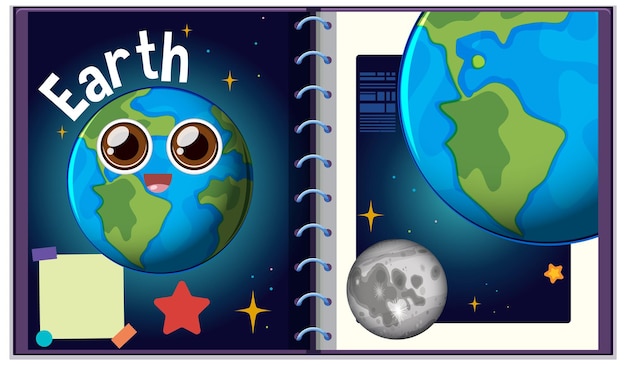10 Fascinating Facts about Earth Every Kid Should Know

Earth is the third planet from the sun.
Our planet is also known as the Blue Planet.
Earth is 4.6 billion years old.
There are seven continents on Earth.
The largest ocean on Earth is the Pacific Ocean.
Earth is the only planet known to have life.
The Earth’s atmosphere is made up of several layers.
The highest mountain on Earth is Mount Everest.
Earth has a natural satellite called the moon.
The Earth has a molten iron core.
The Earth’s rotation causes day and night.
Earth is the perfect distance from the sun for life to exist.
Earth is home to millions of different species of plants and animals.
The Earth’s magnetic field helps protect us from harmful solar radiation.
About 70% of the Earth’s surface is covered in water.
Earth has a diverse range of climates, from hot deserts to freezing polar regions.
The Earth’s crust is made up of multiple tectonic plates.
Earth’s largest desert is the Sahara Desert in Africa.
The Earth’s ecosystem is made up of interconnected food chains.
Earth’s rotation gives us the seasons.
The Earth has an ozone layer that protects us from ultraviolet radiation.
The deepest point on Earth is called the Mariana Trench.
The Earth’s gravity keeps us grounded and objects from floating away.
Earth’s natural resources include minerals, forests, and freshwater.
10 Fascinating Facts about Earth Every Kid Should Know part 2
Earth’s surface is constantly changing due to weathering and erosion.
The Great Barrier Reef in Australia is the largest living structure on Earth.
Earth’s tropical rainforests are known for their incredible biodiversity.
Earth has a natural satellite called the moon.
The Earth’s axial tilt causes the seasons to change.
Earth’s atmosphere is made up of nitrogen, oxygen, and other gases.
Earth’s magnetic field helps guide animals during migration.
The Earth completes one orbit around the sun in about 365 days.
Earth’s polar ice caps are melting due to global warming.
The Earth’s rotation creates the illusion of the sun rising and setting.
Earth’s landmasses were once connected in a supercontinent called Pangaea.
Earth has a diverse range of ecosystems, from forests to deserts to oceans.
The Earth’s oceans contain about 97% of the planet’s water.
The Earth is approximately 12,742 kilometers in diameter.
Earth’s atmosphere protects us from meteoroids as they burn up upon entry.
Earth’s oldest known rocks are about 4 billion years old.
The Earth’s magnetic field has flipped its polarity numerous times in history.
Earth is the only planet in our solar system that is not named after a god.
The Earth’s oceans are home to over 230,000 known species.
Earth’s natural resources are finite and need to be conserved.
Earth is a precious and unique planet that deserves our care and protection.

